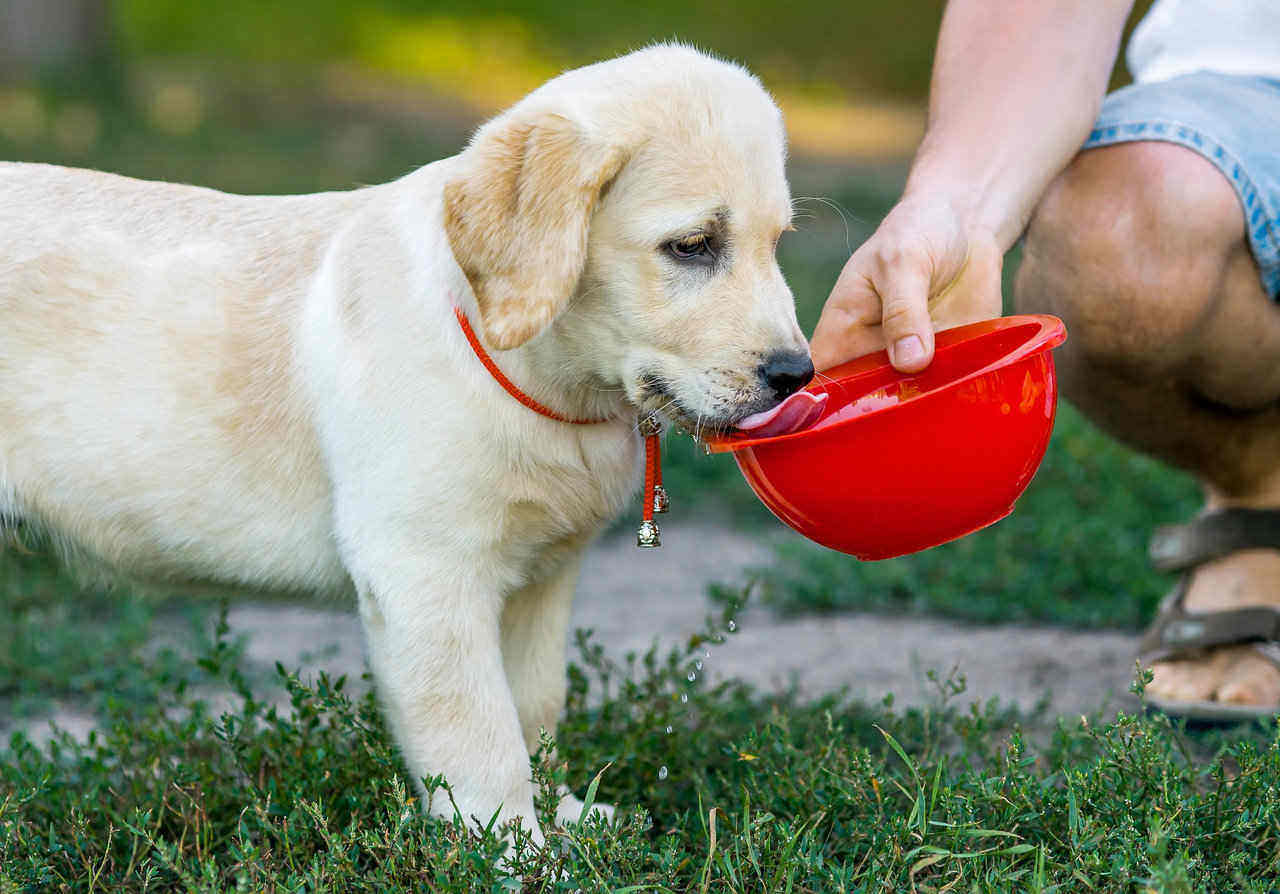Many dog parents wonder whether milk is a safe option for your dog to drink. The answer isn’t that straightforward because it depends on your dog’s ability to digest lactose in milk.
So, is it safe for dogs to drink milk? No, it isn’t safe for dogs to drink milk, specifically cow milk, when they are lactose intolerant or have a food allergy. The majority of dogs are lactose intolerant so it is a much safer option to not give them milk.
Table of Contents
Why your dog shouldn’t drink milk?
Even though milk has a lot of benefits to your dog as it contains vitamins and minerals, many dogs have the inability to digest lactose which leaves them with a condition known as lactose intolerance.
It mainly happens because they lack lactose in their bodies. This is an enzyme that breaks apart the lactose molecule found in products such as dairy products.
It will ultimately cause them symptoms and side effects that will make your dog sick.
Naturally, dogs after puppyhood lose their ability to digest lactose.
The reason is that when puppies are weaned at a young age, the activity of the enzyme that digests lactose decreases and ultimately disappears causing dogs to become more affected by lactose.
Causes of lactose intolerance
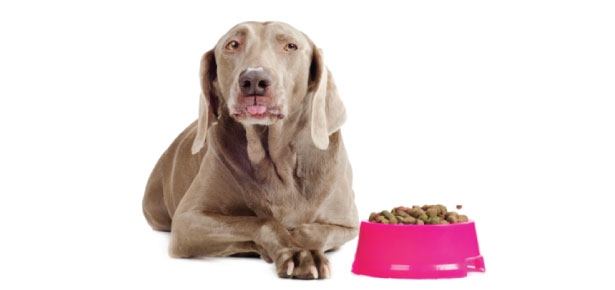
Food allergy
An allergy to a certain type of food is mainly caused by the immune system which causes this reaction when it tries to protect the body against a threat.
An allergic reaction doesn’t happen the first time that your dog is exposed to the food that they are allergic too but rather it happens after repeated exposures.
An example would be dogs who show intolerance to certain types of food, if they continue drinking or eating this food, they will develop a food allergy.
Signs of a food allergy
The signs of a food allergy are more severe than food intolerance. Even though they seem similar, there are differences between the two.
- Vomiting
- Itchiness ( excessive ear scratching or licking paws)
- Diarrhea
- Redness in the skin
- Hives
- Difficulty breathing
- Swelling of the face
Food intolerance
Food intolerance is caused by having an intolerance to a specific type of food that is likely to cause side effects and symptoms in the gastrointestinal.
This makes your dog very sick and likely to experience discomfort and pain.
Many dogs are lactose intolerant to products that have lactose in them such as milk.
Signs of lactose intolerance

The symptoms of lactose intolerance are not life-threatening but are uncomfortable.
Symptoms will start within just thirty minutes to two hours from digesting the dairy product.
Some of these symptoms include:
- Toileting accidents in the house
- Dehydration
- Abdominal pain
- Bloating
- Diarrhea
- Vomiting
- Weakness
- Weight loss
- Excessive thirst
Here are the top 5 signs of lactose intolerance in detail.
1.) Diarrhea
This is one of the most common signs of lactose intolerance. You will notice it if you find that there is an increase in the number of feces that your dog makes and it’s watery or loose.
Normal stool should be firm so if you find that your dog has diarrhea, trace back what they have eaten to identify if the cause is food.
2.) Vomiting
If your dog vomits a lot and with great intensity, it can be a sign that they are lactose intolerant.
If your dog is lactose intolerant, chances are that this may happen because of changes in the gut after eating dairy products.
You can predict that your dog is going to vomit when they begin to drool or lick surfaces; it means that they are nauseous.
3.) Lack of appetite
If there are changes in your dog’s appetite, they may be nauseous from side effects that happen because of them eating things that have lactose on them.
Thus, it is important to keep on watching your dog and see if they have eaten anything that might have caused them to have a change in appetite.
Their lack of appetite may also result from an injury or a virus so it might not be a case of lactose intolerance.
4.) Bloating
An increase in gas content in the stomach either in the small or large intestine will lead to bloating.
Bloating causes the stomach to stretch excessively causing the stomach to appear bloated.
5.) Excessive gases
Your dog may have excessive gases in their stomach. This mainly happens that food is fermenting in the gut.
It is especially true after your dog consumes dairy, it can be a sign that your dog is lactose intolerant.
Types of food that contain lactose
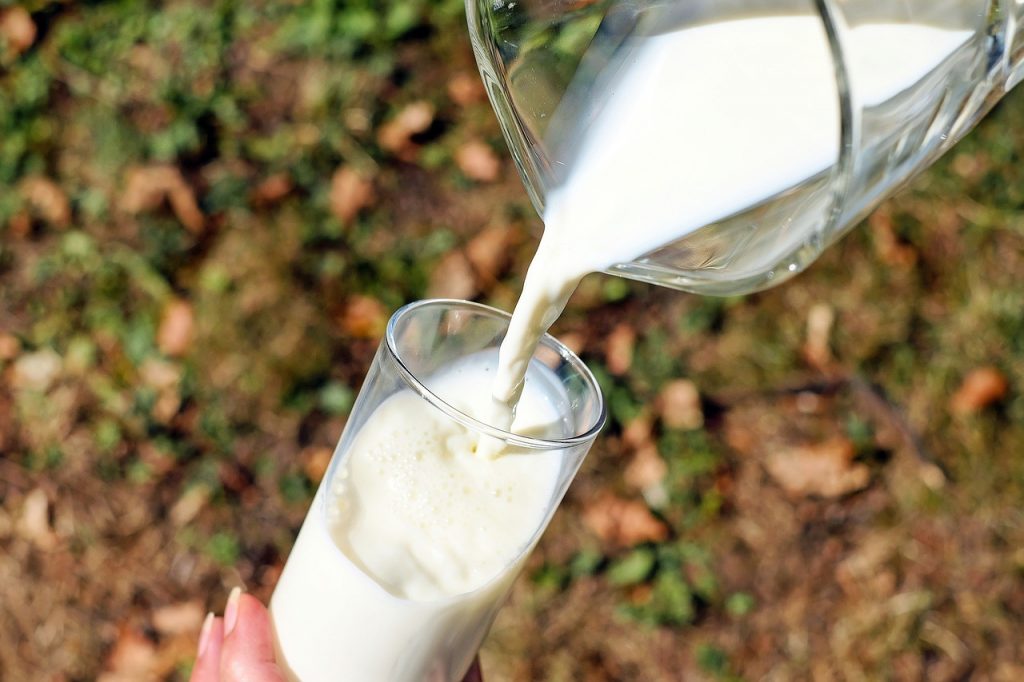
- Butter: The lactose in butter is low, mainly around .8 % to 1 % which is extremely low in terms of lactose content. It isn’t the highest in lactose; however, it is high in fat and salt content.
- Cow’s milk: It contains a high percentage of lactose that even puppies couldn’t digest. Regardless of whether you heat the milk or not, lactose will still be found in full fat and fat-free milk.
- Cheese: Even though processing the milk while making cheese reduces the amount of lactose, the final result is always diverse among different types of cheese. You may have cheese that contains a very low amount of lactose while others contain a very high amount in it.
- Ice cream: Ice cream does contain lactose and contains other things that are harmful to your dog such as a high amount of fat and sugar.
- Yogurt: Even when milk is transformed into yogurt, lactose isn’t destroyed. However, yogurt contains its own enzymes that when digested helps break down lactose. This is the reason that yogurt is tolerated more than milk but still, you have to give it to your dog occasionally.
What if your dog is intolerant or has an allergic reaction to milk?
If your dog has either has an intolerance or allergic reaction to milk, you must first eliminate dairy products from your dog’s diet and monitor them for a couple of weeks and months to see if their symptoms have gone.
This means eliminating any food that contains dairy including snacks that contain cheese and yogurt.
If there are no changes in your dog’s condition, go to a vet who will recommend a specific diet for your dog.
Alternatives to cow milk for your dog to drink
There are many alternatives that your dog may drink instead of cow milk. Depending on the type of milk, you still need to give them the milk in moderation so it doesn’t cause them problems when given excessively.
Goat milk
Many vets see many dog parents switch to goat milk and give it to their dog. Many dog parents are wondering if goat milk is a better alternative than cow milk.
When compared with cow milk, goat milk is higher in nutrients such as calcium and potassium but lower in vitamins B12 and folate.
Goat milk is also lower in lactose than cow milk so it’s a better alternative; however, you got to first test your dog by giving them a small amount of goat milk so you can see how they tolerate it.
Even though it is low in lactose, it still contains lactose so give it as a treat to your dog occasionally instead of cow milk.
Almond milk
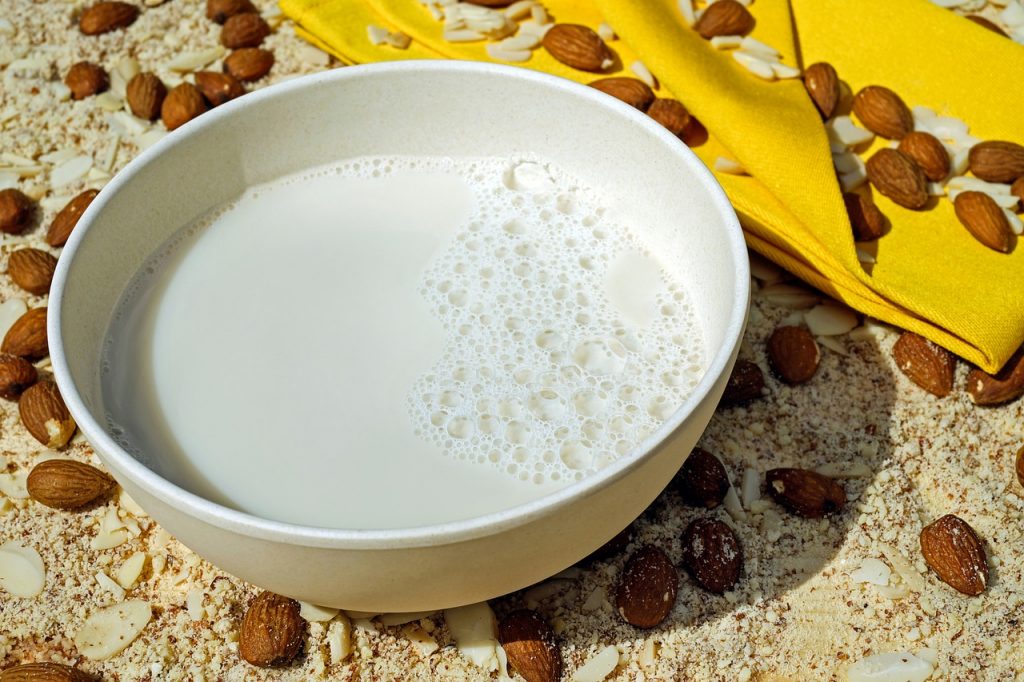
Your dog can drink almond milk as an occasional treat. Always, start in very small amounts to test if your dog has an allergic reaction to the milk.
Also, it is important to stay away from almond milk that is sweetened as it contains xylitol which is very toxic to dogs.
Soy milk
Soy milk is another non-dairy alternative that is extracted from certain plants.
It contains proteins such as isoflavones. These proteins have been found to reduce urinary inconsistency in dogs.
Dogs digest soy milk very easily; however, you got to give it to your dog in moderate amounts.
These are all alternatives that have to be given to your dog in moderation so they won’t have problems such as stomach problems.
Can puppies drink milk?
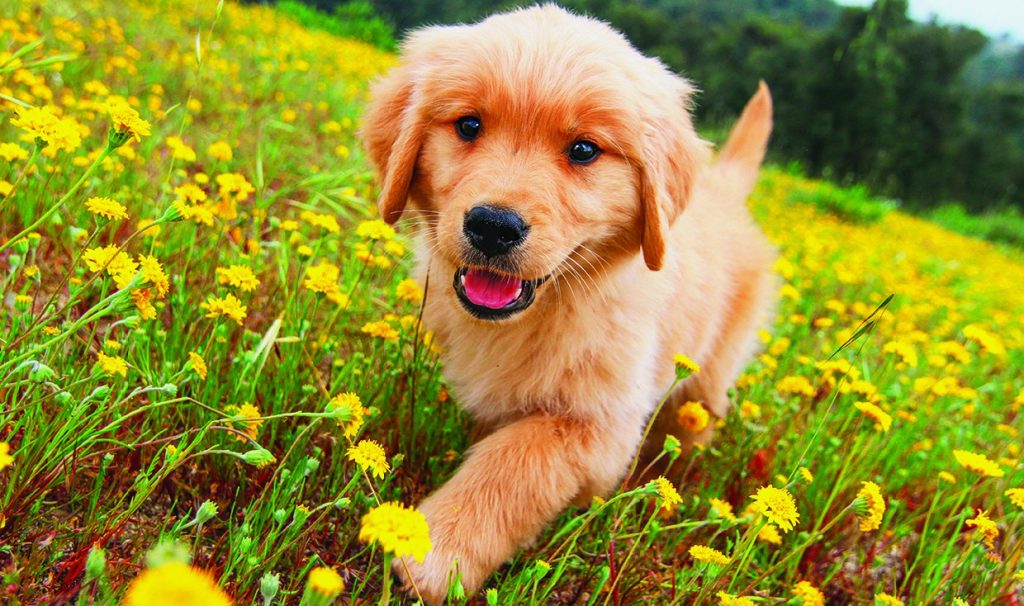
Puppies have an undeveloped digestive system that is very sensitive so under any condition, don’t give your puppy cow milk.
They have to be left only drinking their mother’s milk as it is suitable for them and will not cause them any problem.
However, there are some times where puppies won’t have access to this type of milk; they may be abandoned or orphaned in which case they do need milk.
Still, never give your puppy regular cow milk. Thus, it is best to consult your vet about a puppy milk replacer that you can find in pet stores.
Conclusion
To sum it up, cow milk shouldn’t be given to dogs to drink because it can make them sick.
Even though there are alternatives, different kinds of milk, they have to be also given in moderation so your dog doesn’t have any symptoms and side effects.
It is best to stay on the safe side and only give them alternatives to milk.
As for other foods that contain lactose such as cheese and yogurt, you can give them these foods because they contain a very low amount of lactose but also in moderation.
However, you got to choose the best suitable and low in lactose food so your dog doesn’t get sick.
To know more about whether old dogs can learn new tricks, check Can Old Dogs Learn New Tricks?
Share your opinion with us. Do you think that your dog drinking milk is safe or not?

